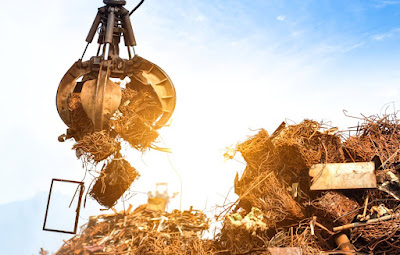How To Properly Sort And Identify Scrap Metal For Recycling?
Are you curious about how to unlock the hidden value in your scrap metal collection?
Sorting and identifying scrap metal for recycling may seem like a daunting task, but fear not!
In this article, we will delve into the different types of scrap metal, where to find them, and offer expert tips on sorting and organising your collection.
We will also reveal the secrets to identifying valuable scrap metal Melbourne items that could fetch you a handsome sum.
So, get ready to turn your scrap metal into cash as we guide you through the process of preparing it for recycling.
Different Types of Scrap Metal
There is a wide array of different types of scrap metal that can be found and recycled for cash. Understanding the various types can help you properly sort and identify scrap metal items.
One common type of scrap metal is ferrous metals, which contain iron and are magnetic. Examples include steel, cast iron, and wrought iron. Non-ferrous metals, on the other hand, do not contain iron and are not magnetic. This category includes aluminium, copper, brass, and stainless steel.
Another type of scrap metal Melbourne is precious metals, which are highly valuable due to their rarity. This category includes gold, silver, and platinum. Industrial metals, such as nickel and titanium, are used in various industries and can also be recycled.
This will help maximise the value of your scrap metal and ensure that you get the best price when you recycle it.
Common Sources of Scrap Metal
Common sources of scrap metal can be found in various places, providing ample opportunities for recycling. One common source is construction sites, where discarded metal materials such as beams, pipes, and wires are often left behind.
Renovation projects also yield scrap metal, as old fixtures, appliances, and wiring are typically replaced and discarded. Industrial settings, such as factories and warehouses, generate large amounts of scrap metal, including machinery parts, equipment, and containers.
Automotive scrapyards are another significant source, as old cars and their components can be recycled for their metal content.
Additionally, household items like old appliances, plumbing fixtures, and aluminium cans are commonly collected and recycled as scrap metal.
Tips for Sorting and Organising Scrap Metal
One of the most crucial aspects of recycling scrap metal is properly sorting and organising it. By following these tips, you can streamline the process and maximise the value of your scrap metal collection.
- Start by separating ferrous and non-ferrous metals. As mentioned earlier, ferrous metals contain iron and are magnetic, while non-ferrous metals do not. Use a magnet to determine whether a piece of metal is ferrous or non-ferrous.
- Once you have separated the different types of metal, further categorise them based on their specific material. For example, separate aluminium from copper, brass from stainless steel, and so on. This will make it easier when you finally decide to sell your scrap metal.
- Consider removing any non-metal components attached to the scrap metal, such as plastic, rubber, or wood. While these materials may not affect the value of the metal itself, removing them can simplify the recycling process.
- Take note of the condition and size of the scrap metal pieces. Sorting them based on size can help optimise storage space and transport efficiency. Also, be aware that some scrap yards may have size restrictions or preferences.
- Keep your scrap metal organised by using bins, buckets, or labelled containers. This will prevent mixing and make it easier to assess and sell your collection.
By implementing these tips, you'll ensure that you're sorting and organising your scrap metal in the most efficient and profitable way possible.
Preparing Scrap Metal for Recycling
Before recycling scrap metal, it is crucial to properly prepare it to ensure the highest possible value. Here are some steps to follow when preparing scrap metal for recycling:
- Clean the scrap metal: Remove any dirt, debris, or non-metal materials attached to the metal. Cleaning the metal will ensure accurate identification and prevent contamination during the recycling process.
- Separate different types of metal: Sort and organise the scrap metal based on its specific material, such as ferrous or non-ferrous metals. This separation will help maximise the value and make it easier to sell.
- Cut or break down larger items: If you have large pieces of scrap metal, consider cutting or breaking them down into smaller, more manageable pieces. This will optimise storage space and transportation efficiency.
- Bundle or stack similar metal items: Group similar items together to further streamline the recycling process. Bundling or stacking the scrap metal will make it easier to assess and sell the collection.
- Store the scrap metal safely: Store the prepared scrap metal in a secure and organised manner to avoid any injuries and ensure easy access when it's time to recycle.
By following these steps, you can effectively prepare your scrap metal for recycling, maximise its value, and contribute to the sustainability of our environment.
To sum it all up...
Sorting and identifying scrap metal for recycling is a crucial step in maximising the value of your unwanted materials.
By understanding the different types of scrap metal and their common sources, you can effectively sort and organise your collection.
Identifying valuable items is another key aspect, as it helps you distinguish which pieces are worth investing time and effort in.
Lastly, preparing scrap metal Melbourne for recycling involves proper cleaning and removing any non-metal components.
By following these tips and incorporating them into your recycling routine, you can not only contribute to a cleaner environment but also potentially earn some extra cash from your scrap metal recycling endeavours.




Comments
Post a Comment